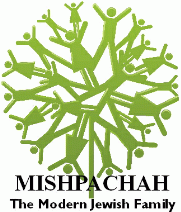
In the continuation of our year-long initiative on Mishpachah, family – all families, whatever their make-up – we are extending our focus and resources to involve children. During November, Jewish Book Month, our Orpah’s List will provide opportunities to engage with diverse families through works of adult and children’s fiction.
Jennifer Gilmore’s novel, The Mothers, follows Jesse and Ramon through the harrowing, infuriating and often humiliating process of adoption. Gilmore’s narrative is filled with colorful and memorable personalities, both within her own dysfunctional family and those she meets along the way, confirming the opening line of Tolstoy’s Anna Karenina: “Happy families are all alike; every unhappy family is unhappy in its own way.”
A full Women’s League study guide is available, along with a publisher discount for multiple copies of the book.
In addition to our annual selection of an adult work of fiction, we are offering two storybooks for children, each also about family diversity. Click here for suggestions on how to use the individual study guides. Click on each title below for the study guides, which include questions to discuss with children and suggested activities.
The Purim Superhero, by Elizabeth Kushner is the story of young Nate who has two fathers. Nate wants to dress as a super alien for Purim, bucking the tide of the more commonplace superhero costumes that are favored by his friends. Although the child-centered story tackles very weighty themes of courage and self identity, it nevertheless will resonate with children. Not coincidentally, the themes of courage and self identity are also central to the Purim story. Available at Kar-Ben Press.
Rebecca’s Journey Home, by Brynn Olenberg Sugarman, tells the story of a Jewish family who adopts a child from Vietnam. The story reflects multiple perspectives: the Steins, the adopting parents, Jacob and Gabriel, the siblings who are about to have a new baby sister from another part of the world, and finally the baby Rebecca. As international adoptions become increasingly commonplace in the Jewish community, this book will be a useful resource for helping to explain diversity.
3080 Broadway, Suite K900, New York, NY 10027 | Phone: 405-870-1260 | info@wlcj.org
Copyright © 2026 Women’s League for Conservative Judaism. All rights reserved. | Terms of Use | Privacy Policy | Website by Addicott Web